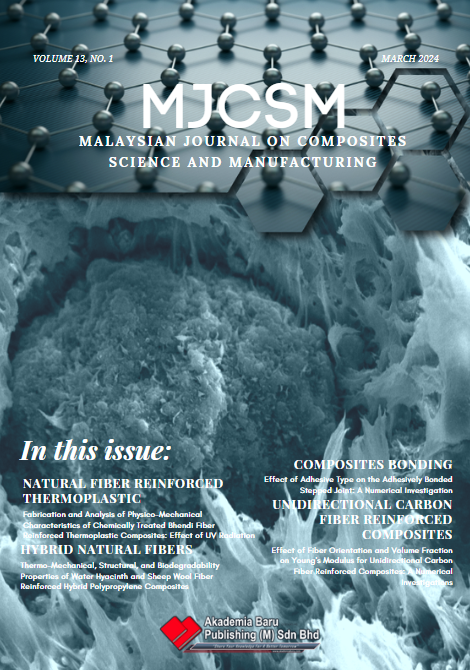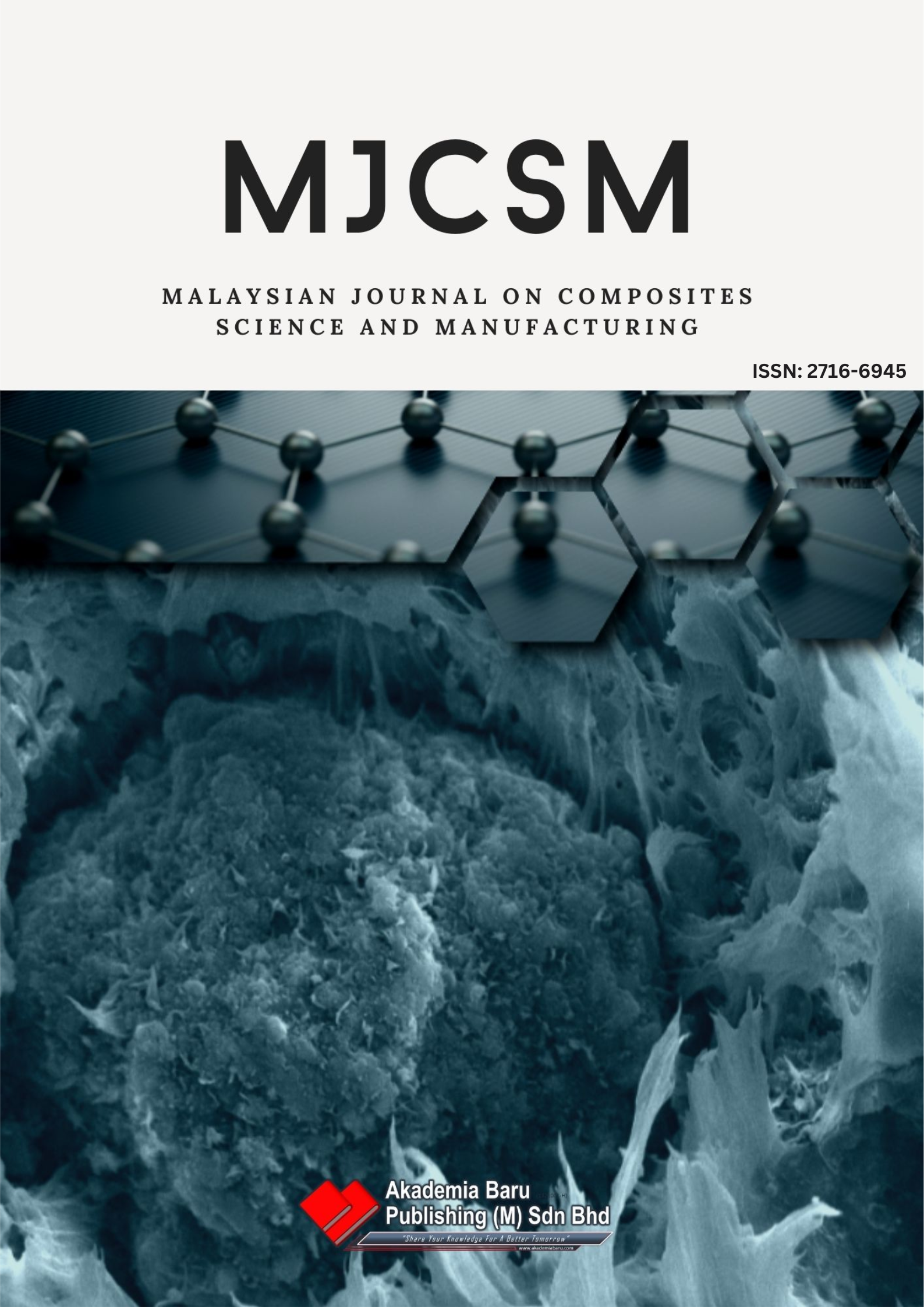The Physicomechanical and Interfacial Properties of the Vetiveria Zizanioides Fiber Reinforced Polymer Composites
DOI:
https://doi.org/10.37934/mjcsm.13.1.112125Keywords:
Composite, Vetiver fiber, Sodium dodecyl sulfate-treatment, Polypropylene, Mechanical featuresAbstract
The effects of chemical treatment and vetiveria zizanioides (vetiver) loading on the physicomechanical, morphological, and weather tests of the vetiver fiber (VF)-filled polypropylene (PP) composites were investigated. Raw VF was chemically treated with sodium dodecyl sulfate (SDS) and SDS-pretreated benzoyl chloride to increase its compatibility with the PP matrix. The mechanical properties of the PP/VF composites, including tensile strength, tensile modulus, impact strength, hardness, and water absorption, were increased by raising the fiber content to the optimum level of 30 wt%. The resultant composites' mechanical characteristics and water desorption were improved by adding SDS and SDS-pretreated benzoyl chloride for the VF. PP/VF composites containing benzoyl chloride after SDS pretreatment show better mechanical performance when compared to untreated and SDS-treated fiber composites. SEM studies showed that the treatment of the fibers enhanced the interfacial interaction between PP and VF, verifying the mechanical properties of the composites. Water absorption tests revealed that SDS-pretreated benzoyl chloride composites absorbed less water than untreated counterparts and even SDS-treated composites. Sodium dodecyl sulfate-pretreated benzoyl chloride composites exhibited less loss in tensile strength and tensile modulus during weather testing than sodium dodecyl sulfate-treated and untreated composites.
Downloads












